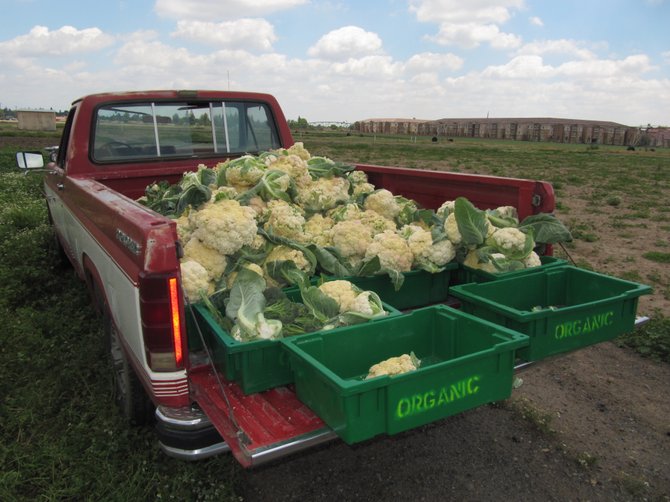If you care about food safety, human health and the environment, and if you haven't heard of California's Proposition 37, yet, please read on.
Prop. 37 seems innocuous enough. It simply requires that all food containing genetically modified organisms (GMO) or genetically engineered ingredients should say so on the label.
Why do the giant food and agriculture companies fear this so?
They allege it would be too costly to label products differently for only one state. Some companies would simply not sell in California—and limit those citizen's consumer choices, they protest—and "it will cost jobs!"
That's a straw-man argument. California is home to 37 million Americans—the largest state in the country by population (and the second largest "state" in the western hemisphere). If big companies don't sell in California, they won't stay big for long. As California goes, so goes the country.
If Prop. 37 passes, it's more likely that companies will simply label foods containing GMOs instead of increasing costs and creating non-GMO product lines in an attempt to capture both markets. This is already happening with soy milk and cereal products in groceries that stock organic foods.
The real reason ag and food giants don't want labeling is because they don't want to give up market share, spend money to develop new products or spend more for non-GMO ingredients. In other words: It's all about short-term profits.
Labeling GMO foods will likely accelerate the already phenomenal growth of organic food purchases away from "conventional" foods, brought to you by pesticide-laden, synthetic chemical farming, which makes food far cheaper to produce.
Polls repeatedly show that 90 percent or more of Americans want labeling of GMO foods. Why? No one has shown that GMOs are safe. Under a quirk of U.S. food-safety laws, the U.S. considers GMO seeds, crops and foods safe without any independent testing. No one knows what the long-term effects will be on human health or the environment.
Because of this, European countries, Japan and other countries require labeling on food products containing GMOs—which come mostly from the United States—and have outright bans on GMO seeds and crops.
Why does Prop. 37 matter to the rest of the United States? If the proposition passes:
• Big companies will change their crop purchasing to non-GMO. This, in turn, also could boost organic farming, which bans GMOs.
• More "conventional" farmers will turn to organic farming where prices are higher, especially if big companies are willing to sign contracts for organic products.
• Seed companies, which are being bought up by giant GMO producers to limit competition, will promote more heritage, heirloom and non-GMO seeds for farmers due to increased demand and loss of GMO market share.
• Because there will be fewer GMOs—which producers genetically engineer to withstand spraying with chemical pesticides and fertilizers—less chemical spraying is likely, which is good for the environment.
• It may be possible to halt or reduce honeybee colony collapse disorder. Experts suspect the causes of bee population decline to be certain GMO corn varieties and some pesticides used with GMO crops.
• Fewer potential human-health and environmental risks could arise from the unknowns of growing GMO crops, as the market for GMO dries up.
Overall, labeling GMO is an attempt to wrest control of food choices from the big ag, seed and Food conglomerates and put it back into the hands of consumers—where it belongs.
Read about GMO myths and truths at http://www.earthopensource.org/index.php/reports/58 Find out more about California's Proposition 37: California Right to Know Campaign (http://www.carighttoknow.org).



Comments